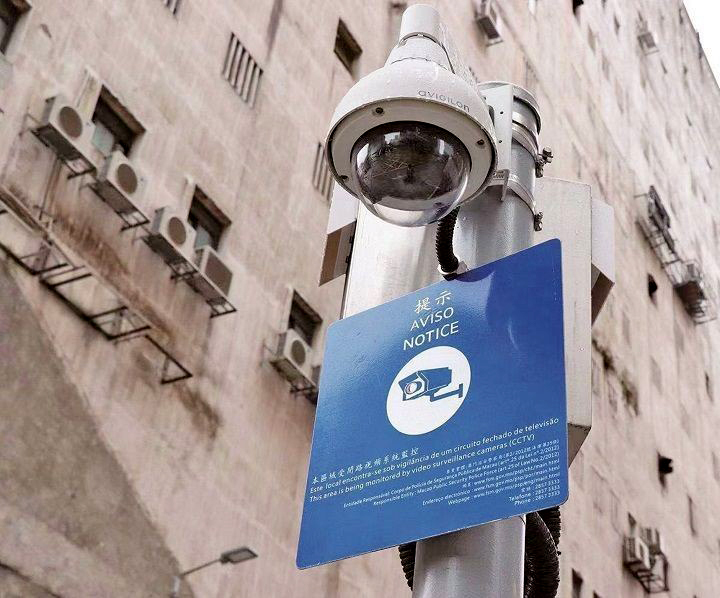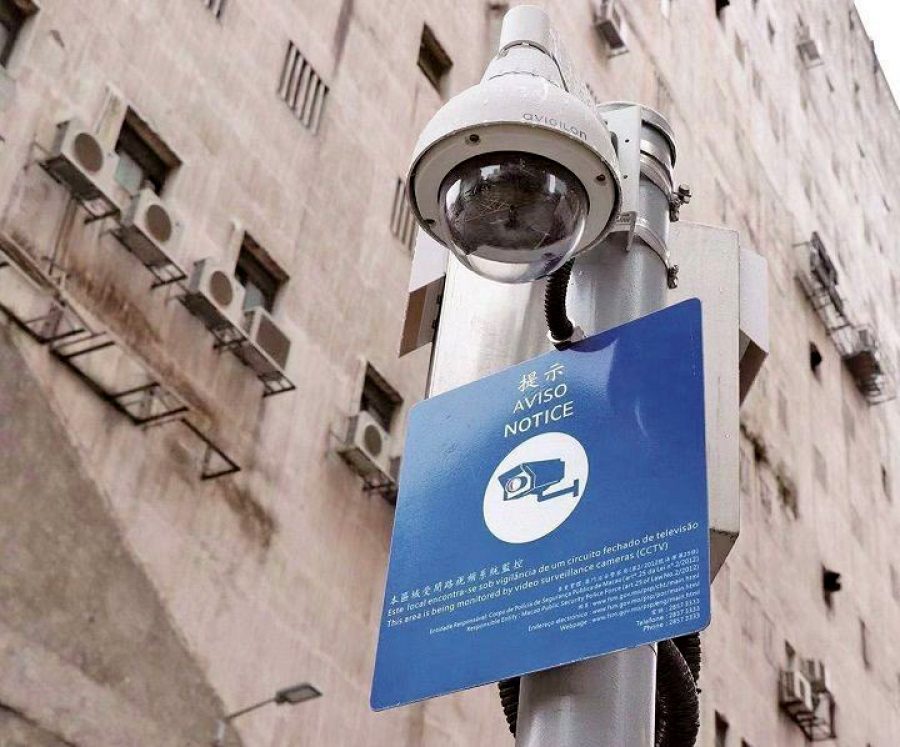The police said on Wednesday that 50 cameras of the police forces’ citywide CCTV camera system will be equipped with facial recognition technology and that another 50 cameras will be equipped with the automatic number-plate recognition technology on a trial basis in the first quarter of next year.
João Augusto da Rosa, an assistant to the commissioner-general of the Unitary Police Service (SPU), made the remarks on Wednesday when attending a current affairs phone-in programme hosted by Ou Mun Tin Toi, the Chinese-language radio channel of government-owned broadcaster TDM.
Secretary for Security Wong Sio Chak first revealed in November last year – when addressing a plenary session of the legislature — that the government planned to introduce facial recognition and automatic numberplate recognition to the police forces’ citywide CCTV camera system in 2019, adding that the two recognition technologies would be first installed in 100 CCTV cameras each.
According to Wikipedia, automatic number-plate recognition is a technology that uses optical character recognition on images to read vehicle registration plates to create vehicle location data. It can be used in CCTV cameras, traffic enforcement cameras, or cameras specifically designed for the task.
Several years ago, the government started its citywide CCTV camera system project – which is still ongoing – to install a total of 1,620 CCTV cameras in four phases. The government first revealed last year that it had started to study the possibility of installing even more CCTV cameras in the city – namely in the fifth and sixth phases.
The installation of the first phase of CCTV cameras was started in 2015. The first phase – 219 cameras – came into operation in September 2016.
The cameras in the first phase are located in the areas around the city’s various border checkpoints.
The CCTV camera installations of the second and third phases were being carried out at the same time. The second phase (263 cameras) and the third phase (338 cameras) came into use at the same time in June last year.
The cameras in the second phase have been installed on all major roads, while the cameras in the third phase have been installed in so-called security black spots and at major tourist attractions.
The installation of the fourth phase of CCTV cameras was started in February last year. The government has said that it expects the fourth phase — 800 cameras — to come into operation in the first quarter of 2020.
Security hazards
The government has said that the cameras in the fourth phase will be installed in quiet places as well as places with potential security hazards.
During the plenary session in November last year, Wong said that the CCTV cameras at the city’s border checkpoints had already been equipped with the facial recognition technology. Wong said at that time that in reference to the mainland’s smart policing technology, the local police planned to introduce facial recognition and automatic numberplate recognition to the police forces’ citywide CCTV camera system in the two, three and fourth phases in 2019.
During the plenum in November last year, Wong said that for the second and third phases of the CCTV camera system, the police planned to add facial recognition and automatic number-plate recognition devices to 100 CCTV cameras — 50 CCTV cameras for each of the two technologies. Wong said that for the fourth phase — which was underway, the police planned to install the two recognition technologies in 100 CCTV cameras — 50 CCTV cameras for each of the two technologies.
Speaking in Wednesday’s phone-in programme, Augusto da Rosa said that 50 cameras of the police forces’ citywide CCTV camera system will be first equipped with facial recognition devices and another 50 cameras will be first equipped with automatic number-plate recognition devices, and that they will come into use on a trial basis in the first quarter of next year.
Augusto da Rosa also said that for the fourth phase — the CCTV camera installation of which is still underway, 100 cameras will be equipped with the two recognition technologies. Augusto da Rosa said that the police forces’ citywide CCTV camera system would have 200 cameras equipped with the two recognition technologies in the future. Augusto da Rosa went on to say that at that time, CCTV cameras with the two recognition technologies would cover areas around the city’s various casinos and hotels, adding that the police expect the new situation to help the police combat criminal activities more effectively.
‘Very helpful’
According to the Macau Post Daily, Augusto da Rosa also said that the police forces’ citywide CCTV camera system has proved to be “very helpful” for the police to solve criminal cases. Augusto da Rosa said that since it came into operation in 2016, the citywide CCTV camera system has helped the police quickly solve more than 2,000 crime cases. Augusto da Rosa pledged that the police will continue to make use of the citywide CCTV camera system in strict adherence with the law, with the aim of striking the right balance between the protection of residents’ privacy and the increase in the efficiency of the police’s law enforcement tasks.






